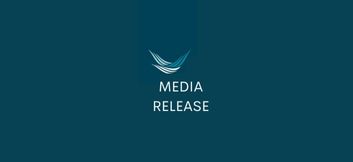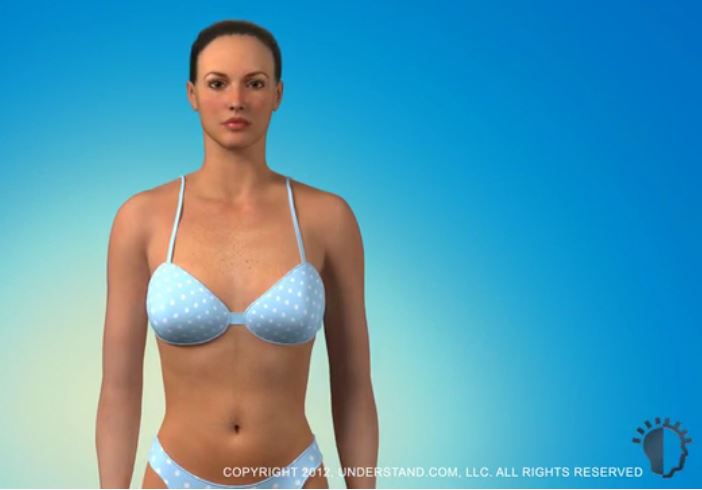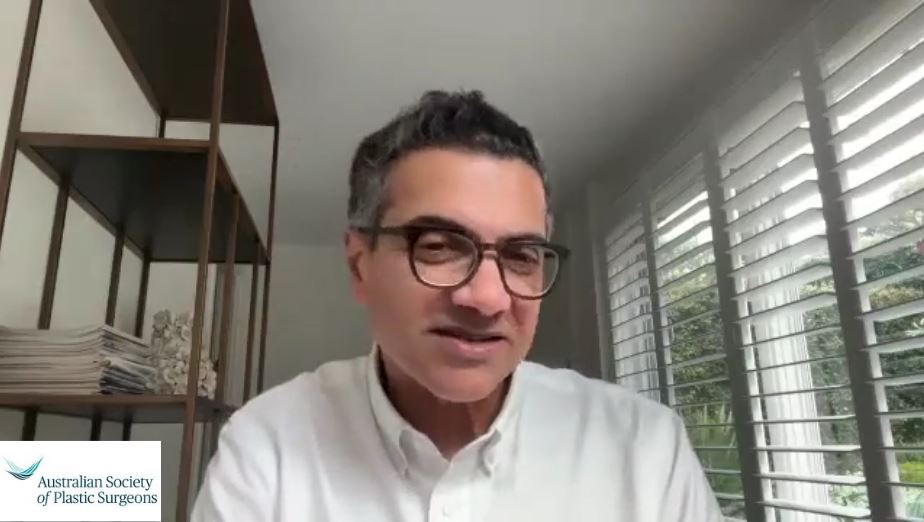Procedures
Breast Augmentation (implants)
- About Your Specialist Plastic Surgeon
- Cosmetic
- Non-surgical Procedures
- Plastic Surgery Glossary
- Questions for Your Surgeon
- Reconstructive
- Surgical Procedures
- Abdominoplasty (cosmetic)
- Abdominoplasty (muscle repair postpartum)
- Arm Lift
- Body Contouring
- Body Lift
- Breast Asymmetry Correction
- Breast Augmentation (implants)
- Breast Implants with Lift
- Breast Lift
- Breast Reconstruction
- Breast Reduction
- Brow Lift
- Burns and Scarring
- Chest Surgery
- Chin Surgery
- Cleft Lip & Palate
- Ear Surgery
- Eyelid Reduction Surgery
- Facelift Surgery
- Facial Implants
- Facial Procedures
- Fat Injection
- Genital Reconfiguration Surgery
- Gluteal Augmentation or Buttocks Lift
- Gynaecomastia (male breast reduction)
- Hair Replacement Surgery
- Hand Surgery
- Labiaplasty
- Liposuction
- Lymphoedema Surgery
- Nipple Enhancement for Inverted Nipples
- Nose Surgery
- Scar Revision
- Skin Cancer
- Thigh Lift
- Tissue Expansion
- Voice Surgery
Breast Augmentation (implants)
Breast augmentation, also known as augmentation mammoplasty, can be a cosmetic procedure or a reconstructive procedure in the case of breast reconstruction surgery. The procedure involves implants being inserted beneath the breasts to enlarge them. The implant type and size depends on factors such as how much bigger you want your breasts to be, your breast anatomy, skin thickness and elasticity, and body type.
Any surgical or invasive procedure carries risks. Before proceeding, you should seek a second opinion from an appropriately qualified health practitioner.
Breast implants can be used to:
- Enlarge small breasts
- Restore breast volume after weight reduction or pregnancy and breastfeeding
- Even up asymmetric breasts
- Reconstruct a breast after mastectomy or injury
The two main types of breast implant used in Australia are:
Saline implants
– a silicone envelope filled with varying amounts of sterile salt water (saline). This can affect the shape, firmness and feel of the breast. If the implant shell leaks, a saline implant will collapse and the saline will be absorbed and naturally expelled by the body
Silicone implants
– a silicone envelope filled with an elastic gel that feels much like natural breast tissue. If the implant leaks, the gel may remain within the implant shell or it may escape into the scar capsule (area around the implant) or even into the breast tissue. A leaking implant filled with silicone gel may not collapse
Implants are placed behind the breast, not within the breast tissue. Implants can be inserted either:
- Between the breast tissue and the chest muscle, or
- Behind the large chest muscle called the pectoralis major
Each position has its advantages and disadvantages. Your Specialist Plastic Surgeon can provide further details and will recommend which position is likely to be most suitable for you.
Breast augmentation is a highly individualised procedure and may not be suitable for everyone. Always talk to your Specialist Plastic Surgeon before making a decision. Your Specialist Plastic Surgeon will assess your condition and general health, and plan the treatment that is best suited to you.
Before you decide on breast augmentation with implants, there are some important issues to keep in mind:
- Breast implants may affect your ability to breastfeed
- Breast implants are not guaranteed to last a lifetime and future surgery may be required to replace one or both implants
- Smokers are at increased risk of complications from any surgery. If you are serious about undergoing cosmetic surgery, you should try to quit smoking
- If you are concerned about the way you look or are thinking about cosmetic treatments to boost your confidence, there are alternatives to cosmetic surgery. These may include other treatments, wearing padded bras or accepting yourself the way you are.
Breast augmentation may be a good option for you if:
- You are physically healthy
- You have realistic expectations
- Your breasts are fully developed
- You are bothered by the feeling that your breasts are too small
- You are dissatisfied with your breasts losing shape and volume after pregnancy, weight loss, or with aging
- Your breasts vary in size or shape
- One or both breasts failed to develop normally
Remember that the shape and size of your breasts before surgery will influence the surgical procedure and the outcome.
Breast augmentation can be performed using different types of anesthesia, including general anesthesia, local anesthesia, or twilight sedation. Discuss your options with your Specialist Plastic Surgeon.
Modern anaesthesia is safe and effective, but does have some risks. Ask your Specialist Plastic Surgeon and anaesthetist for more information. Your surgeon and/or anaesthetist will ask you about all the medications you are taking or have taken, and any allergies you may have. Make sure you have an up to date list before the surgery.
Modern surgery is generally safe but does have the potential for risks and complications to occur.
Some possible complications and risks associated with breast augmentation may include:
- Surgical risks such as bleeding or infection
- Fluid accumulation around the implant after surgery
- Allergic reaction to suture materials, tape adhesive or other medical materials and lotions
- Changes in breast and nipple sensation
- Temporary or permanent areas of numbness
- Wrinkling of the skin over the implant
- Keloid, or lumpy scar tissue, which is pink, raised and irregularly shaped. These scars may be inflamed and itchy. There are several possible sites for the incision. Discuss this with your surgeon
- Capsular contracture, where firm scar tissue forms around the implant causing it to lose shape and softness
- Inappropriate implant size
- Implant rupture or deflation
- Asymmetry (unevenness) of the breasts
- Calcium deposits in the scar capsule around the implant
- Granulomas, or lumps in local lymph node tissue formed by leaking silicone
- Breastfeeding difficulties, including reduced milk supply
- Reduced effectiveness of breast cancer screening, since an implant may hide breast tissue (and tumours) during a mammogram
- Movement of the implants from their original position
- Further surgery to treat complications
- Risks of anaesthesia including allergic reaction or potentially fatal cardiovascular complications such as heart attack
- A blood clot in the deep veins of the legs (deep vein thrombosis), which can move to the lungs (pulmonary embolus) or to the brain and may be life threatening.
There have been allegations suggesting a potential link between breast implants and the development of connective tissue diseases such as rheumatoid arthritis, lupus erythematosus, scleroderma, and similar autoimmune conditions. While some research has suggested small increased risks, many medical studies have not shown that the implants increase the risk of these problems. A proportion of all women in the community will develop these diseases, including women with implants. The possibility of the development of connective-tissue and autoimmune diseases, even if remote, should indeed be considered when making decisions about breast augmentation.
Rarely, women with implants have reported general symptoms, including joint pain, general aching, swollen lymph glands, unusual tiredness, greater frequency of colds and flu, hair loss, rash, headaches, poor memory, nausea, muscle weakness, irritable bowel syndrome and fever. The relationship of these symptoms to autoimmune disorders has been suggested but not proven.
Implants may interfere with the detection of breast cancer using mammography, a type of X-ray examination. If you have had breast cancer, a family history of breast cancer or may have other risk factors for breast cancer, tell you Specialist Plastic Surgeon.
There is currently no conclusive evidence to suggest that breast implants increase the risk of breast cancer, although the possibility has been taken into consideration. It remains important for individuals with breast implants to learn how to perform self-examinations of their breasts to detect any potential lumps or changes. Your surgeon may also suggest a regular follow-up appointment for an examination of breasts for lumps and to assess the implants.
Individual cases may vary but generally, mothers can breastfeed after having breast augmentation. However, some women do experience reduced nipple sensation following breast augmentation surgery making it difficult to trigger the milk let down reflex. Some women may also experience reduced milk supply. If you are planning to breastfeed after breast augmentation surgery, talk to your Specialist Plastic Surgeon to get the latest information on this issue.
The ABDR is a registry for implantable breast devices (implants and expanders). It tracks the outcomes and quality of all breast device surgery performed across Australia and reports progressively on the long term performance of implanted devices with the aim of improving patient safety.
We encourage patients to request that their details be recorded with the ABDR.
The former Breast Implant Registry contains records of some patients who had implant surgery during the time period; 1998 – May 2015. More information is available here.
Depending upon your general health and the extent of the procedure, breast augmentation surgery can be performed either as a day case or alternatively with a short hospital stay. Your Specialist Plastic Surgeon will advise on the best option for you. Depending upon your general health and the extent of the procedure, breast augmentation surgery can be performed either as a day case or alternatively with a short hospital stay. Your Specialist Plastic Surgeon will advise on the best option for you.
Before undergoing surgery, it is important that you:
- Be as fit as possible to help the recovery process
- Reach your optimal weight
- Check with your surgeon about your medications as some may need to be stopped
- Stop smoking
You will also be asked to provide a complete medical history for your Specialist Plastic Surgeon including any health problems you have had, any medication you are taking or have taken, and any allergies you may have.
You may be advised to stop taking certain medicines such as non-steroidal anti-inflammatory drugs (NSAIDs), aspirin, and medicines that contain aspirin. You may also be asked to stop taking naturopathic substances such as garlic, ginkgo, ginseng and St John’s Wort as they may affect clotting and anaesthesia. Always tell your surgeon EVERYTHING you are taking.
You may be given medicines to take before the surgery, such as antibiotics.
Questions your surgeon may ask before the surgery include:
- Do you have an allergy or bad reaction to antibiotics, anaesthetic drugs or any other medicine?
- Do you have prolonged bleeding or excessive bruising when injured?
- Do you have a connective-tissue disorder such as rheumatoid arthritis, scleroderma, lupus erythematosis, or any other arthritis-like disorder?
- Do you have any long-term or recent illnesses?
- Have you previously had surgery for breast cancer, or radiotherapy to the breast?
- Have you had psychological or psychiatric illnesses?
If you decide to have breast augmentation surgery, your surgeon will ask you to sign a consent form. Make sure you read the consent form carefully before signing. If you have any questions, ask your surgeon.
Unless your surgeon advises differently, you will be able to continue taking most medicines that you have been taking.
Your surgeon will advise you if any other tests are required, such as blood tests, X-ray examinations or an Electrocardiograph (ECG) to assess your heart.
Prepare a “recovery area” in your home. This may include pillows, ice packs, a thermometer and a telephone within easy reach. Make sure you arrange for a relative or friend to drive you to and from the hospital or clinic. Someone should also stay with you for at least 24 hours after you return home.
Your surgeon should give detailed preoperative instructions. Follow them carefully.
Following your surgery, dressings or bandages may be applied to your incisions. You may be wrapped in an elastic bandage or a compression garment to minimize swelling and to support your operation site as it heals. A small, thin tube may also be temporarily placed under the skin to drain any excess blood or fluid that may collect.
Depending on the extent of your procedure, you may need to take a few days off work to rest. Avoid heavy lifting, strenuous exercise, swimming and strenuous sports until advised by your surgeon.
If you experience any of the following symptoms, notify your surgeon immediate:
- Temperature higher than 38°C or chills
- Nausea, vomiting, shortness of breath or diarrhea
- Heavy bleeding from the incisions
- Leakage of blood or fluid beyond the first day after surgery
- Worsening and/or spreading redness around the incision sites
- Increasing pain or tenderness in either breast
- Any other concerns or problems regarding your surgery, particularly if it appears to be worsening
Your surgeon will give you specific instructions on post-operative care. These instructions may include:
- How to care for your surgical site(s) following surgery
- Medications to apply or take orally to aid healing and reduce the risk of infection
- Specific concerns to look for at the surgical site(s) or in your general health
- When to follow-up with your surgeon
Be sure to ask your surgeon specific questions about what you can expect during your individual recovery period, such as:
- Where will I be taken after my surgery is complete?
- What medication will I be given or prescribed after surgery?
- Will I have dressings/bandages after surgery? If so, when will they be removed?
- Are stitches removed? When will they be removed?
- When can I resume normal activity and exercise?
- When do I return for follow-up care?
Scars are an inevitable part of any invasive surgery. Your Specialist Plastic Surgeon will endeavour to minimise scarring and to keep your scars as inconspicuous as possible by locating the incisions in easily hidden sites. That way, scars will be along natural skin lines and creases. Scars may fade with time and become barely noticeable. If you are prone to scarring, you should advise your surgeon.
Breast implants are not guaranteed to last a lifetime. Future surgery is often required to replace one or both implants. As with all surgical procedures, revisional surgery may also be necessary to correct any problems that may develop.
Cost is always a consideration in elective surgery. Prices for individual procedures can vary widely between Specialist Plastic Surgeons. Some factors that may influence the cost include the surgeon’s experience, the type of procedure used and the geographic location of the office.
Costs associated with the procedure may include:
- Surgeon’s fee
- Hospital or surgical facility costs
- Anaesthesia fees
- Prescriptions for medication
- Post-surgery garments
- Medical tests
Your surgeon should welcome any questions you may have regarding fees.
Areola:
Pigmented skin surrounding the nipple
Augmentation mammoplasty:
Breast enlargement by surgery
Breast Augmentation:
Also known as augmentation mammoplasty; breast enlargement by surgery
Breast Implants:
Medical devices placed in your body to enhance an existing breast size or to reconstruct your breast. Breast implants can be filled with either salt water (saline) or silicone (elastic gel)
Capsular contracture:
A complication of breast implant surgery which occurs when scar tissue that normally forms around the implant tightens and squeezes the implant and becomes firm
General anaesthesia:
Drugs and/or gases used during an operation to relieve pain and alter consciousness
Haematoma:
Blood pooling beneath the skin
Inframammary incision:
An incision made in the fold under the breast
Intravenous sedation:
Sedatives administered by injection into a vein to help you relax
Local anaesthesia:
A drug injected directly to the site of an incision during an operation to relieve pain
Mammogram:
An x-ray image of the breast
Mastectomy:
The removal of breast tissue, typically to rid the body of cancer
MRI: Magnetic Resonance Imaging:
A painless test to view tissue similar to an x-ray
Periareolar incision:
An incision made at the edge of the areola
Saline implants:
Breast implants filled with salt water
Silicone implants:
Breast implants filled with an elastic gel
Submammary or subglandular placement:
Breast implants placed directly behind the breast tissue, over the pectoral muscle
Submuscular or subpectoral placement:
Breast implants placed under the pectoral muscle, which is located between the breast tissue and chest wall
Sutures:
Stitches used by surgeons to hold skin and tissue together
Transaxillary incision:
An incision made in the underarm area
Ultrasound:
A diagnostic procedure that projects high frequency sound waves into the body and records the echoes as pictures
Visit the Plastic Surgery Glossary for more medical terms.
This website is intended to provide you with general information only. This information is not a substitute for advice from your Specialist Plastic Surgeon and does not contain all the known facts about this procedure or every possible side effect of surgery. It is important that you speak to your surgeon before deciding to undergo surgery. If you are not sure about the benefits, risks and limitations of treatment, or anything else relating to your procedure, ask your surgeon to explain. Patient information provided as part of this website is evidence-based, and sourced from a range of reputable information providers including the American Society of Plastic Surgeons, Better Health Channel and Mi-tec medical publishing.
Featured Stories

ASPS welcomes new Ahpra guidelines for Non-Surgical Cosmetic Practitioners
Sydney. June 3, 2025: The Australian Society of Plastic Surgeons…
Continue reading


